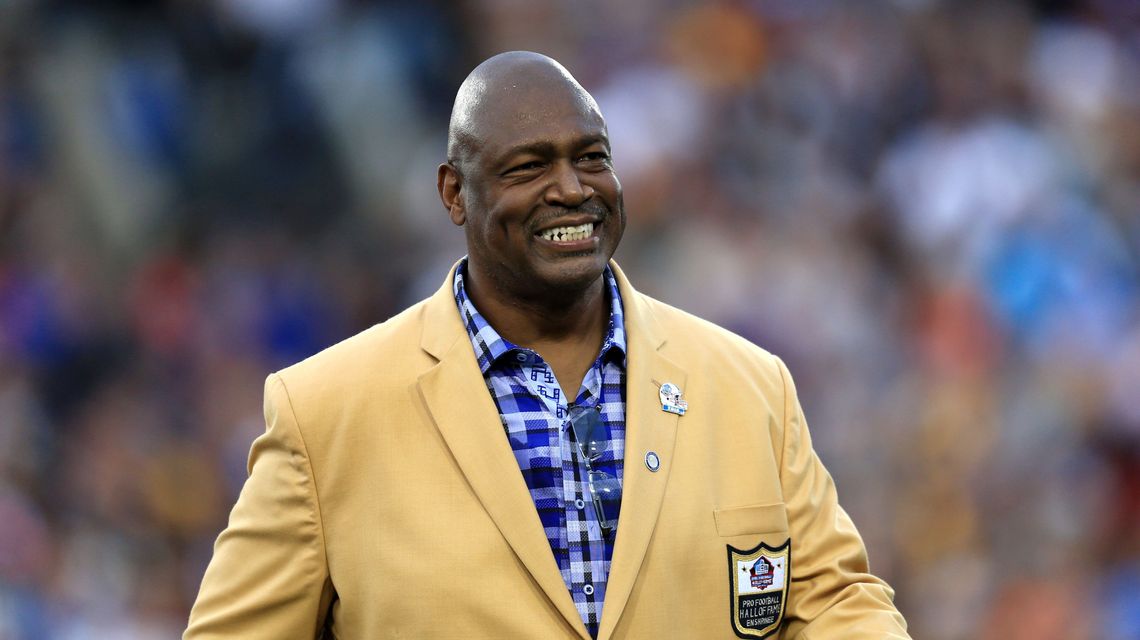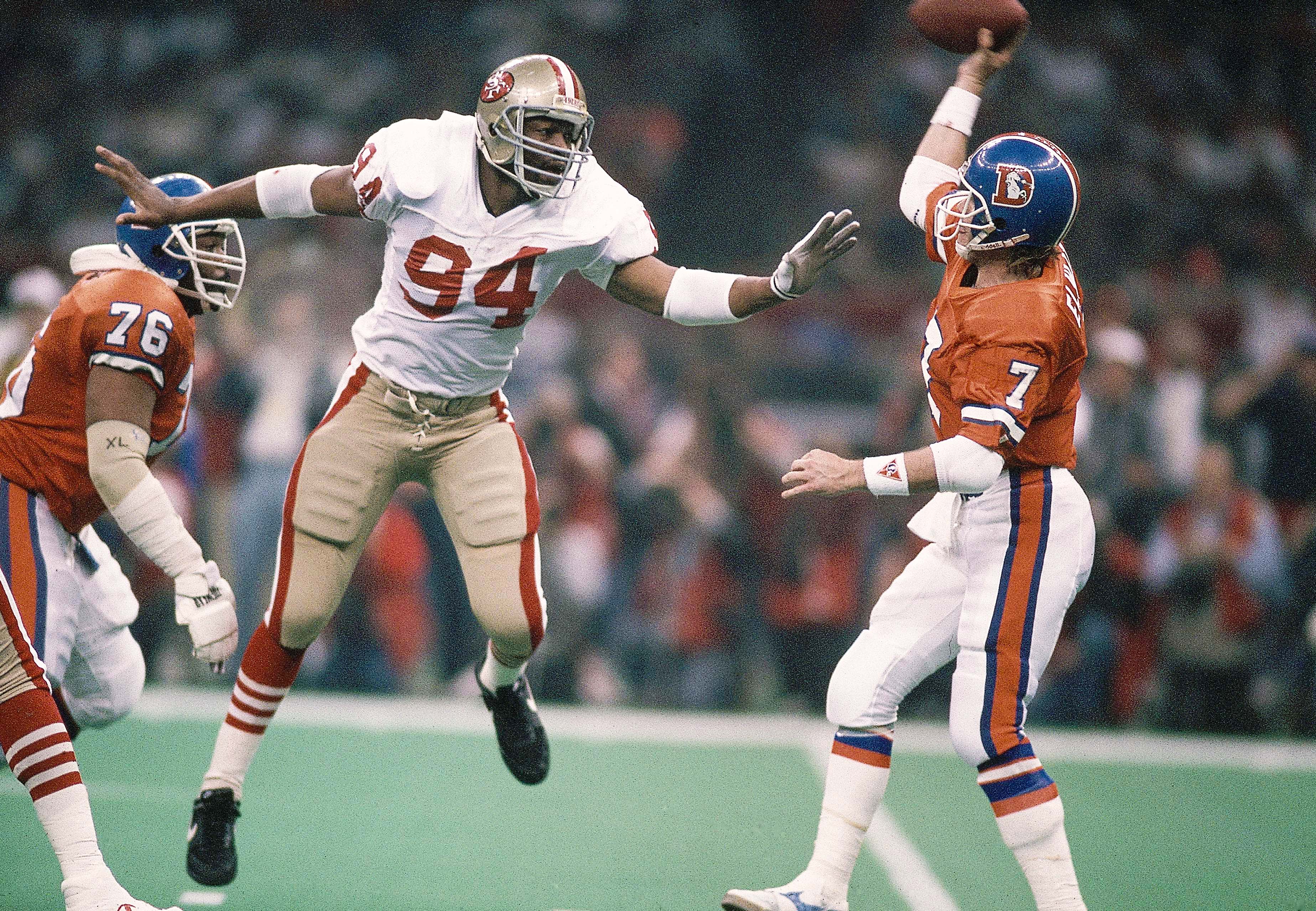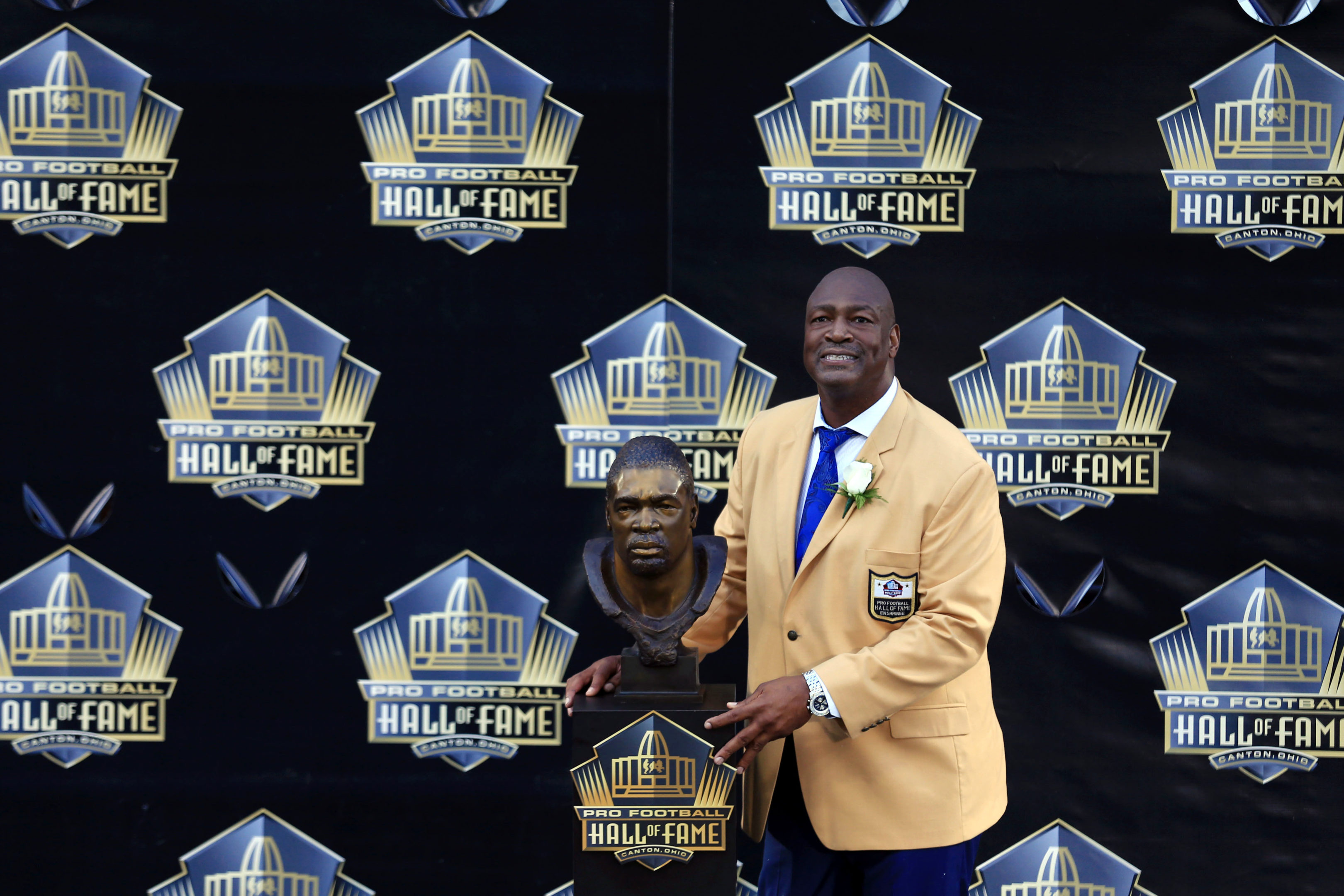
Charles Haley now a mental health advocate after NFL career
DALLAS (BVM) – Pro Football Hall of Famer Charles Haley once had the reputation of a menacing pass rusher over the course of his 12–year NFL career. Today, Haley paints a different picture of himself as a man who wants to help others as they journey through their own struggles with mental health.
Three years after his playing career, Haley was diagnosed with bipolar disorder, opening his eyes to the many struggles he had previously dealt with behind closed doors. Now, Haley pushes those people who are fighting their own battles to not be afraid to ask for help and to build a support system around them.
Early life and high school football
Haley was quick to impress athletically during his early years growing up in Gladys, Virginia. A multi-sport athlete at William Campbell High School in Naruna, Virginia, Haley played three varsity seasons on the football team. Over his final two seasons, Haley led William Campbell to a 16-3-1 regular-season record and was named an All-Group AA linebacker as a senior in 1981. Impressively, he was also an all-district selection at linebacker and tight end and an all-region linebacker choice that season as well.
Though a standout on the field, due to the small size of his school, the 6-foot-4, 212-pound Haley fell through the cracks until the end of his senior year. While he received some attention from bigger schools during that time, Haley had kept the commitment he made earlier to James Madison University, an FCS program in the state.
James Madison
Once on campus at James Madison, Haley became a dominant force. As a freshman, Haley recorded 85 tackles, second on the team, seven tackles for loss, six pass breakups, five sacks, and four forced fumbles.
During his sophomore season, Haley was moved to inside linebacker but that wouldn’t lessen his impact. Haley registered a team-high 143 tackles and recorded four sacks as well. The next season, Haley recorded 147 tackles, three sacks and two interceptions as a junior, helping him earn All-American honorable mention from the Associated Press.
As a senior in 1985, Haley was moved back to the outside and continued his strong play with 131 tackles, five sacks, three blocked kicks and an interception. This earned Haley first-team Division I-AA All-American honors, becoming the first player in Dukes program history to do so.
Haley finished his college career as the program’s all-time leading tackler with 506. He was inducted into the JMU Athletics Hall of Fame in 1996 and the National Football Foundation Hall of Fame in 2011.
NFL career
Given the fact he went to a small school, Haley had to wait to hear his name called in the 1986 NFL Draft, but the San Francisco 49ers got a steal when they selected him in the fourth round, pick No. 96 overall.
Haley immediately made an impact for the 49ers, recording 12 sacks as a rookie. Over his first six NFL seasons, all with San Francisco, Haley recorded 63.5 sacks, was named to three Pro Bowls and was a first-team All-Pro in 1990. He also earned a penchant for helping his team win big games as the 49ers won two Super Bowls, in 1989 and 1990, while Haley was with the team.

However, Haley’s relationship with the team began to deteriorate near the end of his tenure in San Francisco and in August 1992, he was traded to the Dallas Cowboys.
In Dallas, a position change from stand-up or rush outside linebacker to a hands-down defensive end, caused Haley to be less efficient at getting to the quarterback as he only registered 10 total sacks over his first two seasons in Big D. However, Haley was able to correct course and 1994 was able to register 12.5 sacks on his way to Pro Bowl and first-team All-Pro honors. The next year, he’d record 10.5 sacks and another Pro Bowl nod.
Haley helped the Cowboys win three Super Bowls from 1993-1996, making him the first player in NFL history to win five Super Bowls. After an injury–plagued 1996 season in which he only played five games, Haley retired.

However, Haley would only stay retired for the 1997 season, returning to the 49ers for the 1998 postseason though he would only record two tackles in two games. He played one more season with San Francisco in 1999, registering three regular–season sacks to put him over 100 in his career. He retired following the season, ending his career with 100.5 sacks, two interceptions, a safety and a fumble recovery for a score.
Retirement and Hall of Fame
Despite his strong resume, Haley had to wait a while to enter the Pro Football Hall of Fame, not being elected until 2015. Haley maintains close relationships with both the Cowboys and the 49ers to this day, helping his former 49ers teammate Bryant Young learn of his own induction into the Hall of Fame while also mentoring young Cowboys pass rushers.

Haley’s kids followed their dad in his athletic footsteps. Haley’s son C.J. played defensive back for the University of Texas El-Paso while his two daughters, Princess and Madison, each played soccer with Princess ending her career as the all-time leader in goals at Florida Southern and Madison winning two-nation championships with Stanford before being drafted into the National Women’s Soccer League in 2021.
In addition to his family’s success, Haley has found his own success in helping others. His non-profit organization, Tackle Tomorrow, looks to improve early childhood literacy rates and provide family support services in the Dallas area. Haley also has made numerous appearances and speeches regarding mental health and suicide awareness, most recently in May, Mental Health Awareness Month, when he was the keynote speaker at the Menninger Clinic’s Annual Luncheon in Houston.
While Haley may be recognized for his hard-hitting, tough attitude on NFL Sundays, the man today is far different from the one seen in highlights. Though he may not have any regrets about his playing days, Haley has discovered a better self and is using that attitude to help others on their own journeys.




